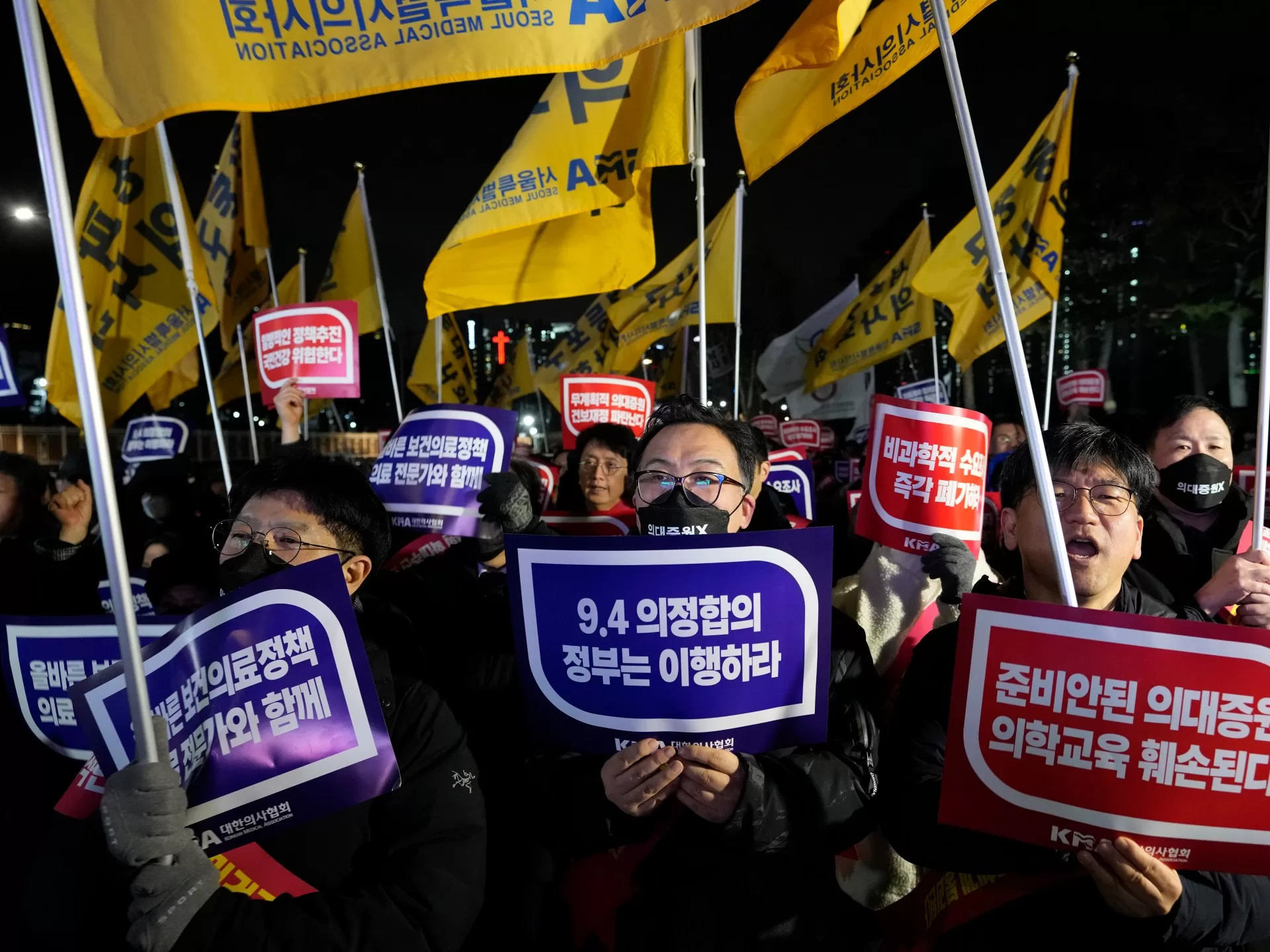Seoul’s biggest hospitals reduce surgeries by a third as trainee doctors continue strike over health reforms.
The reports on Thursday came as the South Korean government called on the doctors to hold talks and threatened to arrest those leading the walkout.
So far, some 9,275 trainees or almost two-thirds of the country’s young doctors have joined the protest against the government plan’s to increase the number of students admitted to medical schools.
The plan was announced as part of a bid to bolster the healthcare system in one of the world’s most rapidly ageing societies.
Doctors claim the changes will hurt service provision and education quality, but critics say the trainees are mainly concerned the reform could erode their salaries and social prestige.
The Yonhap news agency, citing medical sources, said the work stoppage has forced five of the biggest general hospitals in the South Korean capital, Seoul, to drastically reduce surgeries and medical procedures.
“Surgeries were cut in half at Severance Hospital in central Seoul, with St Mary’s Hospital and Asan Medical Center in southern and eastern Seoul, respectively, reducing their surgery capacities by 30 percent,” the agency reported.
These included patients awaiting treatment for cancer as well as pregnant women.
Hong Jae-ryun, a brain cancer patient in his 50s, told the AFP news agency that his chemotherapy had been postponed without clear future dates due to the current situation, even though the cancer has spread to his lungs and liver.
“It’s absurd. In the midst of the conflict between the government and doctors, what can powerless patients say? It feels like a betrayal,” Hong said. “When there is no one to trust and rely on other than doctors, it seems excessive to handle things in this manner.”
The Hankyoreh newspaper meanwhile said several hospitals were delaying C-sections for pregnant women and telling them epidural anaesthesia during labour would not be available.
An official at the Severance Hospital said the facility did not have “anesthesiology interns and residents, and that means we can’t administer epidurals”.
The government of President Yoon Suk-yeol, which has ordered the striking doctors to return to work, said on Tuesday that it will seek arrest warrants and launch investigations for those spearheading the walkout.
“If illegal collective action actually results in damage to the lives and health of patients, (trainee doctors) will be held accountable to the highest level,” the government said, according to Yonhap.
Public surveys meanwhile show that most Koreans support the government’s plan, with a recent Gallup Korea poll showing about 76 percent of respondents in favour, regardless of political affiliation.
The protesters, however, say South Korea has enough doctors, and that the government needs to increase pay and reduce the workload, particularly in key areas such as paediatrics and emergency medicine, before recruiting more students.
Park Dan, head of the Korea Interns and Residents Association which is taking part in the protest, said he was willing to be arrested so that the doctors’ demands are heard.
“Everyone is angry and frustrated, so we are all leaving hospitals. Please hear our voices,” he said in a radio interview, adding they were open to dialogue if the government was ready to hear their demands.
Hundreds of Seoul doctors plan to hold a rally late on Thursday in front of President Yoon’s office, according to the Seoul Medical Association.
